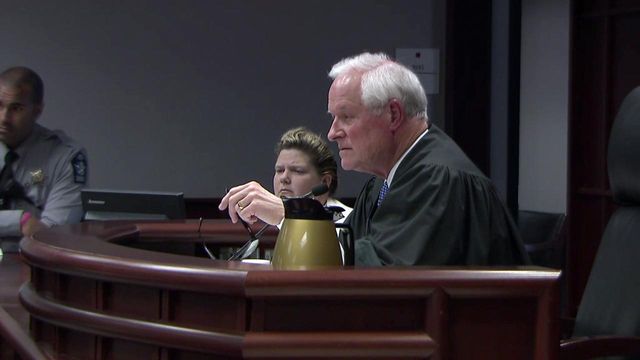Judge temporarily blocks law shifting power from NC education board
A Superior Court judge issued a temporary restraining order Thursday to prevent a new law from taking effect Sunday that would strip various powers from the State Board of Education.
Posted — UpdatedThe state constitution spells out that the State Board of Education oversees the administration of North Carolina's public schools and how state education money is spent, said Bob Orr, a lawyer representing the board. House Bill 17, which the Republican-led General Assembly passed two weeks ago in a special legislative session, is "pointedly specific in its intent" to hand those duties over to the superintendent, he said.
"If that is not a direct attempt to transfer the constitutional powers delegated exclusively to the State Board of Education, I don't know what does," Orr said.
Special Deputy Attorney General Amar Majmundar said the constitution delineates the board's powers "subject to the laws of the General Assembly," so lawmakers are within their rights to transfer some of those powers to the elected state superintendent.
"There is a question as to who and where the constitutional authority lies with, with respect to the educational system of this state," Majmundar said.
Judge Donald Stephens didn't buy that argument, however.
"The General Assembly cannot take away their constitutional mandates," Stephens said. "If this statute is constitutional, what is it that the board will do now?"
Majmundar said the education board would still be responsible for setting rules and regulations for public schools.
The temporary restraining order remains in effect for 10 days, and Stephens has scheduled another hearing for Jan. 6 to determine whether he should put a injunction in place that would block the law until courts determine whether it's constitutional.
What court has authority?
Under a law passed a few years ago, all constitutional challenges to state law are heard by three-judge panels, so Stephens initially was unsure whether he even could act on the request for a restraining order.
Drew Erteschik, an attorney for the State Board of Education, said the fact that the new law was adopted about two weeks before it was to take effect left no time for a three-judge panel to be appointed to handle the request, so Stephens must act.
"This is a very gray area," Majmundar said, adding that any decision made by Stephens could infringe on the findings of a three-judge panel later in the case.
Stephens questioned why lawmakers suddenly found need for a law to sort out education oversight responsibilities and why it had to take effect so soon after passage.
"What is it that is so important about having this law put into effect on Jan. 1, 2017?" he asked. "When did the ambiguity arise? Could it have been late on the evening of Nov. 8?"
He determined that he needed to take authority over the restraining order, subject to subsequent rulings by a three-judge panel, so that North Carolina public schools aren't harmed by any actions taken under a law that might later be found to be unconstitutional.
"Who knows how long (the legal process) will take, all while the state government is trying to operate and two departments are at odds over who does what," he said. "Not the best way to operate a business and certainly not the best way to operate a government."
Related Topics
• Credits
Copyright 2024 by Capitol Broadcasting Company. All rights reserved. This material may not be published, broadcast, rewritten or redistributed.






